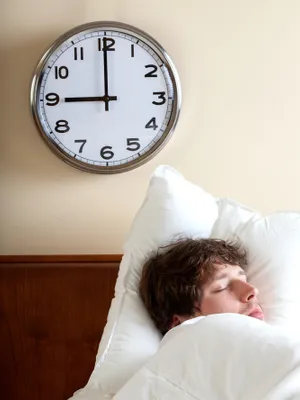We all feel it—that slow, weaning drain on our energy levels in mid- to late-winter. It could be anything from medications, an underlying health issue, or just plain stress that’s causing your fatigue.
Here are eight effective ways to refuel your sputtering energy levels…
1. Get an Omega Boost
Not only are omega-3 fatty acids (the kind you get from salmon and sardines) excellent for heart health—they also increase your energy levels. And if you don’t like fish, don’t worry a 2009 study from the University of Siena, in Italy shows that those who take fish oil supplements also benefit from a boost in energy and alertness.
2. Eat Smaller, More Frequent Meals
An easy way to boost your energy levels is to eat smaller, more frequent meals throughout the day. Lagging blood sugar or lengthy digestion can both put a strain on your energy. Eating smaller portions more frequently boosts blood sugar levels and makes for more efficient digestion. But remember, it also matters what you eat so stay away from refined sugars and processed carbs and stick to fresh fruits and veggies, complex carbohydrates, healthy fats, and lean proteins.
3. Get Some Exercise
If your energy is low, you probably don’t feel like running a few miles. However, getting some gentle physical activity will do a lot to boosts energy levels and improve the operational efficiency of your organs—for instance, your digestive system, liver, heart, lungs, and muscles.
4. Honor Your Internal Clock
If you’re just not a morning person, it’s hard to fight it. That’s why it’s often more effective to honor your internal clock. So if you feel the most energy in the afternoon or evening, take advantage by working with your body’s circadian rhythms vs. against them. Schedule your most mentally and physically draining meetings and activities at this time when you know your performance will be at its’ best.
5. Drink More Water
Oftentimes the body and mind suffer fatigue due to simple dehydration. Lack of water drains your physical energy as well as your mental performance. Do a quick test by checking the color of your urine—if it’s bright yellow, you’re not drinking enough water. Drink 8 to 10 full glasses per day until your urine is clear to pale yellow.
6. Turn in Earlier
Another reason you may be tired is due to a lack of zzzzz’s. Inadequate sleep—which is less than 8 hours per night—may be the cause of your daytime fatigue. According to research from Stanford University, a good night’s sleep promotes overall health, greater physical and mental alertness, and less waking accidents. If you don’t have time for enough shut eye, fit in a quick 30-minute afternoon nap to refuel your energy.
7. De-stress With Yoga
If stress is the prime reason for your fatigue and lack of shut eye, regular yoga can help you de-stress while gradually boosting your energy levels. In fact a University of Oregon study showed that after six months of regular yoga classes, study participants enjoyed a boost in energy, confidence, and well-being while stress levels were diminished.
8. Consult With a Doctor
Have you tried a combination of the tips above? Are you still feeling fatigued? You may want to take your concerns to the doctor’s office. Oftentimes, chronic fatigue is a symptom of an underlying health condition—such as anemia, diabetes, heart disease, thyroid disease, or sleep apnea. You may also want to review and alter your current medications as many drugs can cause exhaustion.











